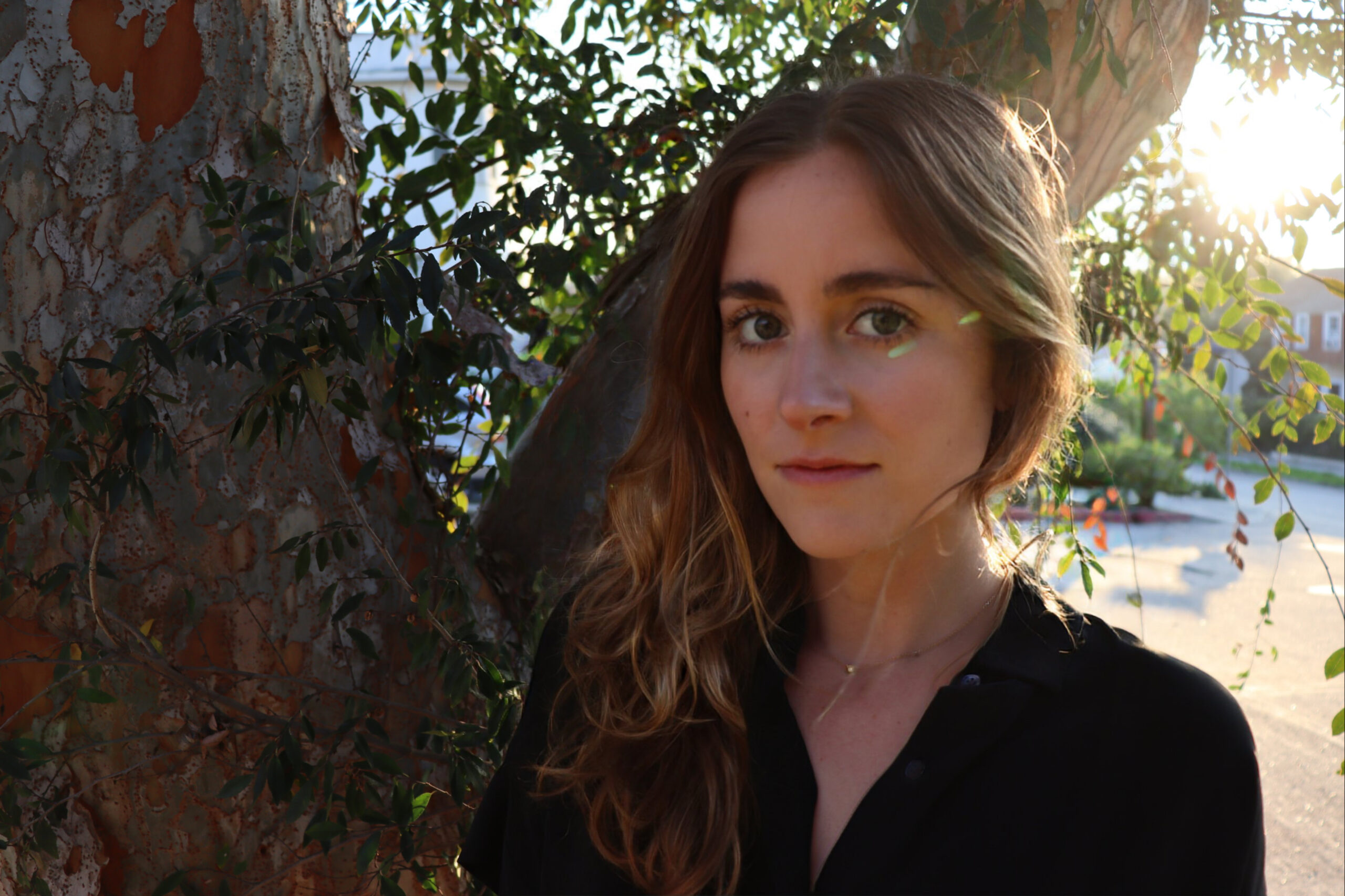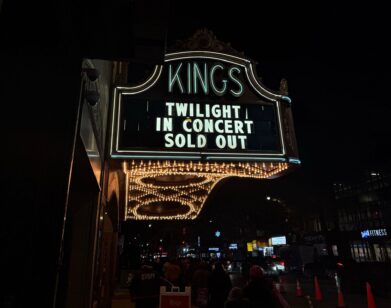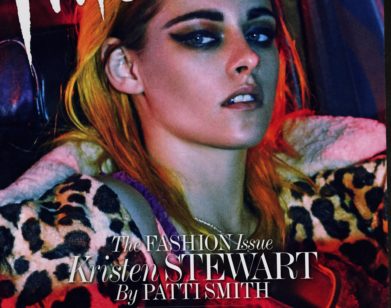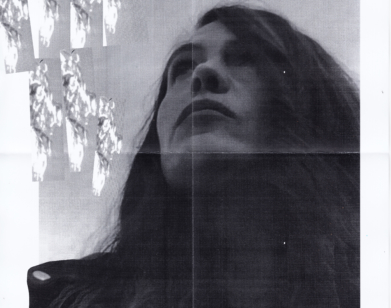LIT
According to Anna Dorn, There’s a Place for Twinks in Lesbian Fiction
A few years ago, for a satire book club on Zoom, two friends and I discussed Vagablonde, Anna Dorn’s debut novel about a depressed attorney turned rapper. The book had transported us away from quarantine and into a more enticing, albeit dark, world of Angeleno gays clout-chasing and abusing pharmaceutical drugs. Instantly hooked on Dorn’s queer chutzpah, I inhaled Bad Lawyer, her 2021 memoir about abandoning a legal career, and then Exalted, a biting satire on astrology influencers.
Perfume & Pain, the L.A. based author’s latest book, is a hilarious homage to 1950s lesbian pulp. It follows Astrid Dahl, a novelist who is now controversial because she refers to herself as a “female faggot” at a Barnes & Noble event. After Kat Gold, a social media savvy actress, reaches out with plans for a TV adaptation of Dahl’s astrology novel, the author embarks on a comeback while trying to avoid her go-to cocktail of booze and uppers. Along the way, there are love interests (a chaotic PhD student, a charming neighbor), very specifically SoCal misadventures (a mean-spirited twink tries to cancel Dahl at a poolside hangout), and quips on LGBTQ+ discourse. “Disneyland is not a queer space,” Dahl proclaims. “There are no queers at Disney.”
Blending over-the-top humor with poignant observations on relationships, Perfume & Pain finds that rare sweet spot between campiness and vulnerability. Last month, just before her novel’s publication, Dorn and I spoke over the phone on what felt like the first hot day in L.A. in forever. In our symposium, she shared her thoughts on fragrances, Kristen Stewart’s poetry, and everyone’s favorite topic: twinks.
———
DANIEL SPIELBERGER: How are you doing today?
ANNA DORN: Pretty good. I just handed in a big project, so I’m just chilling. What about you?
SPIELBERGER: I’m all right. It’s very hot in West Hollywood today. So I really enjoyed Perfume and Pain. I’ve read your other books, and I think this one had a state of enlightenment to it. I also found your approach to lesbian pulp fiction very compelling. It’s not ironic, which is how kitsch culture is usually treated, and you engage with it on its own terms. Can you tell me how you became familiar with lesbian pulp and why you were drawn to it?
DORN: I’m trying to remember when I first became aware of it. I was immediately drawn to it, first and foremost, because it tends to feature fem-on-fem relationships, which you don’t see as much in contemporary queer media. I also like that it was very melodramatic and had these campy covers. I was probably 24 when I first came across one and it just seemed very fun and campy in a way that a lot of lesbian culture is not. Not to come for anything, but those covers spoke to me. Also, the postal service wouldn’t ship these books unless the women were eventually punished for their sexuality, meaning they had to go back to a man or kill themselves in the end. And a lot of the women writing these books have since gone back and rewritten the endings now that they’re allowed to.
SPIELBERGER: It’s so interesting that they were doomed to killing themselves. It’s a very Victorian vibe, the bourgeoisie woman who wants to cheat on her husband but kills herself instead.
DORN: Totally, which is how the original Perfume and Pain ends. The L Word, which I bring up in the novel, is in the same spirit of the pulps, in the sense that it’s melodramatic and soapy. I was also thinking of this idea that’s perpetuated in lesbian media, from the pulps to The L Word, that lesbian relationships are inherently crazy-making. It’s like: two women, obviously they’re going to go insane. So I wanted Astrid to struggle with this expectation and, over the course of the book, learn that it doesn’t have to be crazy-making.
SPIELBERGER: I thought it was interesting that she arrives at a state where she’s able to realize, “Hm, maybe I’m also someone’s crazy ex.” I also like how Astrid puts on perfume before Zoom writing workshops.
DORN: The perfume aspect of the novel actually happened organically and a bit randomly. When I first started drafting the book, it really had nothing to do with perfume. It was more about this woman who needed to change her lifestyle. And then I got this idea that Astrid plagiarized a lesbian pulp book for her Zoom writing group, which is a ridiculous sentence. I was researching lesbian pulp and I came across this book, Perfume and Pain by Kimberly Kemp. And of course, as I said, I was obsessed with the visuals. I was like, “This is what Astrid is going to plagiarize, and I’m going to plagiarize the title.” Then I started developing this independent obsession with perfume. It was very trendy at the time, and I’m incapable of having a casual interest in anything. So I was spending hours a night on Fragrantica, which is this perfume writing website, collecting what I thought was useless knowledge. Perfume is all about seduction and femininity. And it’s associated with frivolity, which are all themes of the book. It happened randomly and organically.
SPIELBERGER: Where do you shop for fragrances in L.A. Don’t gate-keep,
DORN: Luckyscent, that’s not a secret, or Scent Bar. I do like that place, especially because they give you two free samples and I’m very cheap. I probably shouldn’t say that. I don’t want Luckyscent to put me on some kind of list, but I definitely have abused their free sample policy. There’s also this place called Le Pink in Silver Lake. They sell makeup and beauty products and also have a really good perfume selection. But perfume is definitely an expensive hobby if you’re going to go full bottle.
SPIELBERGER: Totally. I like the sample culture as well. I like Le Labo.
DORN: Yeah. I like Le Labo.
SPIELBERGER: I like that you can smell it with these glass cases. You bring the glass case to your face and smell it. And they have steam-punk queer people working there that look cool.
DORN: That’s true. They are normally really good-looking.
SPIELBERGER: Exactly.To switch gears, as an L.A. writer, I love that all your books are set in this very silly city. Astrid, the protagonist, characterizes staying in L.A. as an act of defiance. She’s a contrarian, so she’s going to stay in the city of idiots and not move to New York City. For you, what are the joys of L.A. from a creative perspective?
DORN: Well, I sort of thought of Chloe Sevigny when you said that because she recently did this interview talking so much shit about L.A. One reason is that it was too bright, which I completely agree with. But another one is that her industry is here, so it makes her nervous. And that’s how I feel about New York. I mean, there’s definitely literary culture in L.A., but I like that it’s not the main industry. I find it a lot less stressful. Also, I hate cold weather. So New York was just never really in the cards for me. Unlike Astrid, I’m not from San Francisco, although I did live there for eight years. But I grew up on the East Coast just sort of fantasizing about California as this paradise. I was going to escape to California where people were weirder and freer and there were palm trees and everybody had long wavy hair. And then of course, once I moved here, I realized that there is also a dark side to California and to L.A, mostly having to do with the environment, the fact that it’s so dry and we’re always in a drought and there’s earthquakes and there’s mudslides. It just feels very precarious in a lot of ways. I was always drawn to that as something to explore in my writing.
SPIELBERGER: I saw that through the character of Kat Gold…
DORN: Mm-hmm.
SPIELBERGER: The actress who’s adapting one of Astrid’s books, who is reminiscent of somebody I won’t name. But to me, she personified this very aesthetic engagement with literature and big ideas and discourse. Astrid comments that she doesn’t believe that “someone who voluntarily models for swimwear can complain about being oppressed by the male gaze.” I cackled at that line, but I’ll admit that this fantasy of a writer befriending the super hot celebrity was very alluring to me. Do you feel that mix of temptation but also resentment towards Hollywood?
DORN: Yes, definitely. That’s a really good way of putting it. I mean, at the same time, I’ve always been really interested in pop culture and celebrity. I grew up in Washington D.C., which is a place with zero interest in pop culture or celebrity, so that was my little rebellion. But I’m more interested in it from afar. I love Mary Kate Olsen. Do I want to hang out with her? Probably not. If I saw her, it would be cool, but I don’t really have any burning fire to be her friend. I almost don’t really want to meet the people that I look up to. I’m scared that it would ruin them for me or that we wouldn’t get along. But I think with Kat Gold, it’s sort of like the opposite, because she’s the type of celebrity that Astrid feels a revulsion towards. I once felt that way about her inspiration, who I won’t name, and I felt it towards Taylor Swift and people like her. So she’s stuck with this woman who she just hates, but this woman optioned her book and is giving her all this money. think towards the end, Astrid is starting to sort of like her.
SPIELBERGER: Yeah, totally. Trigger warning: I’m going to ask about twinks. Is that okay?
DORN: Yes, I think so.
SPIELBERGER: For the sake of transparency, I consider myself an otter. So in the Noah’s Ark of gay guys, I don’t think we’re super essential because this is a city for twinks. And twinks, to me, are the end of history. It’s always going to be twinks. But Astrid has a lot to say about twinks. So I have to ask you, do you think twinkhood is tethered to age or is it just a vibe?
DORN: I mean, it’s both. I do think it’s a vibe. Wow, that’s such a loaded question. This is the hardest question I’ve ever been asked. I’m somebody who’s felt like a twink at certain points in my life, mostly in the sense that I have always felt more of a connection to gay male culture than I have to lesbian culture. You know, pop stars and uppers and laughing versus softball and home improvement. But yeah, once you turn 35, you can’t really be a twink anymore, which is what Astrid is struggling with in the book. I mean, what do you think?
SPIELBERGER: For me, twinkness is a vibe. And you can gracefully age as a Twink, but I imagine that some daddies were former twinks and use that knowledge as a tool of seduction, low-key.
DORN: Wait, how so?
SPIELBERGER: Well, I think that as they get older, to adjust to the marketplace of sex, some twinks become daddies.
DORN: Oh, interesting.
SPIELBERGER: That actually leads me to my next question, which is that aging in the queer community and its implications for desirability is a big theme here in the book. Astrid argues that gay guys, as they age, are attracted to pursuing eternal youth, while lesbians have space for people who are aging gracefully. But that also comes with a self-destructive aspect with Carol.
DORN: Oh yeah, true. I feel like straight girls are always like, “Oh, I wish I was a lesbian, it would be so much easier.” And that does really bother me because I think it’s pretty untrue. In my experience, dating men was much more simple. But one thing that makes me extremely grateful to be a lesbian is that I am allowed to age. Obviously, I’m speaking in generalities, and not all men are the same, but I do think women are attracted to age in a way that men are not. And that makes me feel safe. I think I would be a lot more anxious about my age if I was into men. Astrid at one point says she feels grateful that she doesn’t have to think about getting a ponytail facelift, that thing that Bella Hadid got. It just makes you look like your hair’s in a really tight ponytail and all your features are kind of stretched up. Women let their love-interest age in a way that men don’t, generally speaking.
SPIELBERGER: Totally. Not to brag, but a twink-adjacent person told me that I look good for the age of 31. And I was like, “Oh, god.”
DORN: Oh, god. 31 is so young. There isn’t much of a difference between being 26 and 31. I mean, they look the same.
SPIELBERGER: Speaking of twinks and villains, Perfume & Pain is a satirical novel, so there are a lot of over-the-top characters. But to me, the true Voldemort here is the twink with the “Bottom for Hillary” shirt who scolds Astrid for saying the F word. It’s really farcical and absurd, but I think it also speaks to everyone living on the edge right now and worrying that things will get taken out of context online. So what is your approach with online scrutiny on Goodreads and Booktalk and Bookstagram and all those worlds where it seems like people are rewarded for taking someone down?
DORN: So I wrote the bulk of this book in 2021, which is also why Zoom has such a big role in the book. I feel like cancel culture hit its peak around then. I do see the job of a writer as being somewhat risky and reckless with language, and I felt scared. I felt like I couldn’t say anything. I put that struggle into Astrid. That’s a big reason I made her a novelist, because I wanted to explore that feeling of wanting to be entertaining and irreverent and subversive and campy and fun, and also not offend anybody. It’s really hard. But I am starting to learn that it’s maybe not as hard as I thought it was. I also feel that things are starting to swing the other way. There was that takedown of Andrew Huberman, the neuroscientist, a couple weeks ago. You could tell that the writer definitely was like, “I caught him.” But I think the response was mostly like, “Leave this guy’s personal life alone. Who cares if he has multiple girlfriends?” It’s shitty, but it doesn’t change the useful and free neuroscience advice that he’s giving people. The culture is becoming less eager to cancel people for mild transgressions.
SPIELBERGER: I have not read that profile yet, because it’s on one of my discourse tabs. I can’t keep up with everything. So, Kristen Stewart’s 2014 poem, “My Heart is a Wiffle Ball/Freedom Pole” is referenced throughout the novel, specifically the line, “I’ll suck the bones pretty.” I like that Astrid doesn’t hate the poem entirely. When celebrities write, literary types are like, “Oh, nice try.” But if you were Kristen Stewart’s creative writing instructor, what feedback would you give for that poem?
DORN: That’s a good question. I mean, I really liked the poem. I was really in it when I was writing the book, but I haven’t looked at it in a while. But everyone was like, “This is so cringe.” But I read it and I was like, “This is actually pretty good.” I feel like poetry’s main goal is to be continuously surprising on a line level. And I mean, I did stay surprised throughout the poem. Kristen Stewart is in the book a lot. One reason that I am drawn to Kristen Stewart, beyond her being a delicate tomboy and a style icon, is that she really visibly struggles to put words together when she’s doing interviews. She mostly lands on something that’s pretty incoherent. And I feel like it’s so relatable. The way she talks is how I sound in my head. It’s like, Kristen Stewart word salad. I find it very vulnerable and refreshing, especially in a world where so many celebrities are PR machines. There’s a poetry to the way she talks.
SPIELBERGER: It’s definitely accidentally avant-garde vibes.
DORN: It often makes no sense, but in a poetic way.
SPIELBERGER: Which is the goal, I think. Just vibes.
DORN: Exactly.







